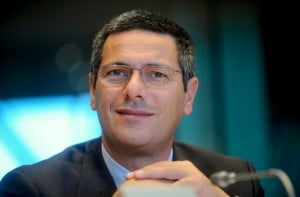 “The new CAP will be easier for farmers, more equitable for producers, more efficient in terms of resources utilization”. The desk of Giovanni La Via (PDL / EPP) is invaded by amendments to the text of which is a speaker on the reform of the Common Agricultural Policy for the period 2014-2020: “There are thousands, but you have to study them all. Our goal is to develop an organic text that takes into account all the priorities that emerged in Parliament”.
“The new CAP will be easier for farmers, more equitable for producers, more efficient in terms of resources utilization”. The desk of Giovanni La Via (PDL / EPP) is invaded by amendments to the text of which is a speaker on the reform of the Common Agricultural Policy for the period 2014-2020: “There are thousands, but you have to study them all. Our goal is to develop an organic text that takes into account all the priorities that emerged in Parliament”.
What will change?
“We will act on three main issues: direct payments, rural development policies and interventions in the market. On the first point, the major change is that the money will go only to active farmers. So far, those who have acquired the right in the historical reference period, still takes the prize, even if they ar no longer farmer, taking away resources to those who really works the fields”.
How are these resources distributed?
“There will be a fairer system, today there are too many differences, a Maltese farmer receives 600 euro of contributions and a Latvian only 60. But there will also be a convergence within countries among those who take more and those taking less”.
How?
“While the old CAP gave support to the income, the new one will give money in exchange for environmental performance: environmental protection, respect for the landscape, encourage biodiversity, respect for groundwater. Farmers will have to leave as a small percentage of the land to rest ‘wild’”.
And what about an intervention in the market?
“We will change the ways of intervention with new mechanisms, promoting and encouraging the aggregation of producers so that together they can better manage the supply. This will calm the market”.
There will also be support for young people?
“A support that is essential if you think that in Europe two thirds of farmers have more than 65 years and only 3.8% are under the age of 35”.
In 2010, the CAP spending whas over 56 billion euros, 45% of the EU budget. A huge amount of money …
“In the future there will be a freeze of resources for agriculture while other resources are growing. This will mean that in percentage terms we will reduce the impact of the CAP on the 2014-2020 multiannual budget down to, maybe, 35%”.
Alfonso Bianchi



![[foto: European Institute for Gender Equality]](https://www.eunews.it/wp-content/uploads/2021/03/gender-pay-gap.jpg)


![[foto: imagoeconomica]](https://www.eunews.it/wp-content/uploads/2024/08/pnrr-meloni-350x250.png)



